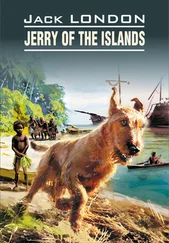Carlos Gamerro - The Islands
Здесь есть возможность читать онлайн «Carlos Gamerro - The Islands» весь текст электронной книги совершенно бесплатно (целиком полную версию без сокращений). В некоторых случаях можно слушать аудио, скачать через торрент в формате fb2 и присутствует краткое содержание. Год выпуска: 2012, Издательство: And Other Stories, Жанр: Современная проза, на английском языке. Описание произведения, (предисловие) а так же отзывы посетителей доступны на портале библиотеки ЛибКат.
- Название:The Islands
- Автор:
- Издательство:And Other Stories
- Жанр:
- Год:2012
- ISBN:нет данных
- Рейтинг книги:3 / 5. Голосов: 1
-
Избранное:Добавить в избранное
- Отзывы:
-
Ваша оценка:
- 60
- 1
- 2
- 3
- 4
- 5
The Islands: краткое содержание, описание и аннотация
Предлагаем к чтению аннотацию, описание, краткое содержание или предисловие (зависит от того, что написал сам автор книги «The Islands»). Если вы не нашли необходимую информацию о книге — напишите в комментариях, мы постараемся отыскать её.
A detective novel, a cyber-thriller, an inner-city road trip and a war memoir,
is a hilarious, devastating and dizzyingly surreal account of a history that remains all too raw.
The Islands — читать онлайн бесплатно полную книгу (весь текст) целиком
Ниже представлен текст книги, разбитый по страницам. Система сохранения места последней прочитанной страницы, позволяет с удобством читать онлайн бесплатно книгу «The Islands», без необходимости каждый раз заново искать на чём Вы остановились. Поставьте закладку, и сможете в любой момент перейти на страницу, на которой закончили чтение.
Интервал:
Закладка:
The second part of the plan was pretty simple. There were two possibilities, depending on how things panned out: a) once inside the SIDE, I’d search for the list of witnesses while I was installing the game on the computer, copy it and leave Verraco eternally playing at defeating the English in his Land of Oz at the end of history; or b) once inside the SIDE, I wouldn’t be able to find the list of witnesses, so I’d install the video game, leave Verraco playing, et cetera, et cetera … Only this time, while Verraco was picking off Sea Harriers the way he must have picked off pigeons with his first air rifle as a kid, a search program, curled up like a worm in the secret entrails of the game, would scan all the computers in the circuit one by one until it found what it was looking for, sink its pirate hooks into it and wrap it in its coils until I could come back for it. And because I needed a good excuse to get back into the SIDE to retrieve it, we move on to plan c): once its work was complete, the worm would send the program a signal to activate a virus in the vulnerable digital blood of Verraco’s game: Falklands 140682.
At first I’d thought of a virus that completely reversed the results of the game, swinging it in favour of a total English victory, just as I’d first marshalled all the advantages to our side. But then — less out of mercy than strategy — I decided to make the rare Argentinian victories immune to the virus: Verraco’s nightmare was that the game would tell the truth, not that it would lie, and if he failed on 2nd April or the Sheffield escaped, he’d feel cheated, more furious at me than humiliated by reality, which was where I really wanted him. So I limited the action of the virus to sequences whose outcomes I’d crudely rigged for an Argentinian victory. So the landing, for example, would be immune to the virus, unaltered, with the additional advantage that Verraco would be beside himself with coke-fuelled triumphalism when, on 1st May, the Vulcan slid through the night sky of Puerto Argentino, as invisible as the new moon, and left the airport useless for the duration, to any planes other than the rugged Hercules transport aircraft; and then, at first light, the Sea Harriers bombed the airport again — with a bit of luck the anti-aircraft defences might shoot down a couple at most — and the base at Goose Green, where they trashed the useless Pucarás on the ground — including the one that would never get off the ground to attack the 28,700 tonne aircraft carrier Hermes , et cetera. Luckily, I didn’t have to redo everything: the virus only speeded up the actions and reaction times of the English, and, save for the odd occasion, Verraco was always destined to lose. When he realised that the Skyhawks, Daggers or Mirages were no match for the Sea Harriers (our planes didn’t win a single dog-fight in the whole fucking war!), he’d begin to crack, and things would only get worse on the next screen, when Conqueror sank the Belgrano along with a third of its crew, while our only submarine, the San Luis , would manage to torpedo nothing more dangerous than a whale. The Exocet would give him a breather, but wouldn’t be enough to dispel the black cloud of the past gathering over his head. Because sinking the Sheffield also entailed that the Narwal could do little to halt the strafing of the Sea Harriers; that, of the crew of the freighter Isla de los Estados , only two would survive the attack by the ultra-equipped frigate Alacrity ; that too many Skyhawks and their pilots would be lost just to put the destroyer Glasgow out of action; that on D-Day (how the victors love to repeat history) the English would land without too much trouble, just one frigate destroyed and two hit at the expense of ten of our Daggers and Skyhawks; and, although over the next few days we’d sink the Antelope and, on 25th May — our last schoolboy day of glory in the war — the Coventry and the all-important supply ship Atlantic Conveyor with another Exocet, the English were already established on the Islands, and three days later would take Darwin and Goose Green, cutting through us like a mower through a garden full of toads squatting in the grass. And the aircraft carrier Invincible would escape the Exocet that Argentina’s powerful desire and feeble destiny had in store for it, and in the days that followed the enemy troops would sight Puerto Argentino for the first time, surround our defences with their artillery and begin to pound us relentlessly in preparation for the final assault. It would all happen so fast that Verraco would relive every minute of those seventy-four days in one or two hours of game-time, the way they say a drowning man relives his whole life dissolved in the water filling his lungs. Longdon, Enriqueta, Dos Hermanas, Wireless, Tumbledown: repeating history without improving it, the virus would eat away his dreams one by one, leaving his fantasies as poor as his memories, snatching defeat from the jaws of defeat.
Chapter 4. SIDE SHOPPING MALL
The new building of the State Intelligence Secretariat lies in the bowels of the recently opened shopping mall at the junction of Avenida Córdoba and Calle Paraguay, and bears the same relationship to it as the tunnels of an ants’ nest do to the mound above — in this case a solid concrete sandstone-coated cube with no communication to the outside world other than two large entrances, around which the ants swirled in a strange inversion of nature: entering empty-handed and emerging fully laden. Pushing my way through — only a couple of them directed curious glances at my combat uniform — I made for a restricted-access lift that plunged like a lead weight into the depths of the building past all three floors of car park before depositing me in the officially non-existent fourth basement, the first of the descending series that bored into the foundations of the city. I came out into a narrow passageway bathed in the cold, familiar glare of fluorescent lights; on the day of its inauguration, I remember, it was as wide as an ordinary city street, but, in no time at all, an obstinate scale of divisions and partitions had narrowed it to such an extent that in several places you had to edge your way through. The uncommon degree of horror vacui that possesses the Argentinian civil service never ceases to amaze me: two days after moving their dossiers and lever-arch files and yellowing snake plants in plastic pots into the new building they were already drafting the first memorandum to request a division, starting by slicing every room in two widthwise, then lengthwise, putting up ever-shorter fluorescent tubes; then, wielding their formica, plywood and hardboard like broadswords, they advanced on the corridors, waiting rooms and halls, the most daring of them building kiosks in the middle of nowhere, which immediately began to secrete their own divisions, eventually merging with other nodes of growth, the way the separate parts of a coral atoll gradually coalesce. I’d been to Verraco’s section on several occasions before, but I could never follow the same route twice, because the building mutated and transformed like a living organism, faster than my sporadic visits would allow me to revise my mental map, and I had to make several detours before I eventually found it.
The ‘Argentina’s by 2000’ Division occupied a sort of enormous, brightly lit cave, where more than twenty people, impelled by the eight-year deadline, were feverishly working — or pretending to — on a variety of plans to regain the Islands. Between these walls, painted that government-issue canary yellow that, even fresh, looks thirty years old, on this synthetic, mustard-coloured carpet pocked with small black craters from cigarette ends, and studded here and there with smooth patches of greying chewing gum, under the mind-numbingly lethargic light in which several outdoor plants were doing their unenthusiastic best to survive, on the sturdy wrought-iron desks upholstered in liver-brown PVC that stood like colossi supporting the unstable accumulation of folders, minutes, memoranda, reports, correspondence, magazines, leaflets, circulars and press releases that, like the walls of a gorge, displayed the different geological eras of official activity, had been devised some of the most brilliant alternatives to the second and final military occupation of the Islands, which for now didn’t look very likely. Among other things, Verraco’s people had laid plans to kidnap Prince Charles and Lady Di, and demand a ransom of one island each (they had to cancel when they found out about their imminent divorce in Hello! ), to subsidise the IRA for terrorist attacks on the Islands, to play England for them at Wembley … The main problem was the obduracy of the Islanders, with whom Verraco was obsessed. ‘I told Menéndez when we were there,’ he’d repeat to whoever would listen, and didn’t bat an eyelid when imagining a lowly captain giving it straight to a brigadier in the middle of wartime: ‘Let’s sort out the Kelpers the Argentinian way: leave one of them standing and he’ll start kicking up a fuss about the Islands being his. But no, the bloody fool took it into his head to protect them like some endangered species, pandas or dogos or whatever, next thing you know he’d be sticking ‘Save The Kelpers’ stickers all over the Island. And now those 1,500 bastards spitting on the barbecue of 30,000,000, ten times as rich as before the war, and it’s all thanks to us — we ended up doing them a favour.’
Читать дальшеИнтервал:
Закладка:
Похожие книги на «The Islands»
Представляем Вашему вниманию похожие книги на «The Islands» списком для выбора. Мы отобрали схожую по названию и смыслу литературу в надежде предоставить читателям больше вариантов отыскать новые, интересные, ещё непрочитанные произведения.
Обсуждение, отзывы о книге «The Islands» и просто собственные мнения читателей. Оставьте ваши комментарии, напишите, что Вы думаете о произведении, его смысле или главных героях. Укажите что конкретно понравилось, а что нет, и почему Вы так считаете.











